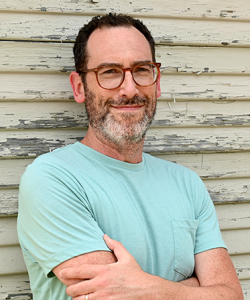Ten Questions for Lucas Schaefer

“A book takes a long time to write, and a long time to publish. So, you know, take a breath!” —Lucas Schaefer, author of The Slip
Jump to navigation Skip to content

“A book takes a long time to write, and a long time to publish. So, you know, take a breath!” —Lucas Schaefer, author of The Slip
In this Politics and Prose bookstore event, Christina Li, author of The Manor of Dreams (Avid Reader Press, 2025), talks about her decision to write a family saga with gothic sensibilities and how the Mandarin and Cantonese languages affected her writing process in a conversation with Martha Anne Toll.
Miss Austen is a four-part historical television series produced by PBS Masterpiece, an adaptation by Andrea Gibb of the novel of the same name by Gill Hornby. Directed by Aisling Walsh, the series stars Keeley Hawes as Cassandra Austen, the sister of late Jane Austen, who searches for Jane’s letters in order to protect her reputation.
Tayari Jones, author of An American Marriage (Algonquin Books, 2018), and A. M. Homes, author of May We Be Forgiven (Viking, 2012), talk about how the definition of women’s literature has evolved over time in this live episode of Poured Over: The Barnes & Noble Podcast hosted by Miwa Messer celebrating thirty years of the Women’s Prize for Fiction.
“This is the way the world ends / This is the way the world ends / This is the way the world ends / Not with a bang but a whimper,” concludes T. S. Eliot’s 1925 poem “The Hollow Men,” described in his obituary in the New York Times as “probably the most quoted lines of any 20th-century poet writing in English.” When considering the ending of something enormously consequential, the expectation might be that the external drama of that conclusion match one’s internal turmoil, however the sorrow of Eliot’s sentiment comes through in the idea of ending not with something explosive and abrupt, but with something much smaller, anticlimactic, and quiet. Write a short story that revolves around an ending of some sort—whether it be the world, a war, or a relationship—and include some portion of these last four lines of Eliot’s poem.

“But so much of the work is done in those gaps, when the book sits in the back of your mind with your subconscious untangling it.” —Nicola Dinan, author of Disappoint Me
Watch the trailer for A Pale View of Hills, a film adaptation of Kazuo Ishiguro’s 1982 novel of the same name. Directed by Kei Ishikawa, the film stars Suzu Hirose, Fumi Nikaido, and Yoh Yoshida, and explores a widow’s memories spanning post-war Nagasaki in the 1950s and England during the 1980s Cold War era.
In this Green Apple Books event, Jemimah Wei reads from her debut novel, The Original Daughter (Doubleday, 2025), and talks about her desire to write about two ambitious girls growing up in modern Singapore in a conversation with R. O. Kwon. “What I tell people about this book is that I’ve always thought it of as a love story, but like a really unromantic love story.”
“I think each project requires its own form, and the story itself demands the form.” In this Louisiana Channel interview, Lauren Groff talks about how her novel Matrix (Riverhead Books, 2021) began as a thought experiment around toxic masculinity, and reflects on the ways fiction can challenge patriarchal storytelling traditions.
“Nothing happens without a reason. Everything was determined by something prior.” In Devs, a 2020 science fiction television miniseries written and directed by Alex Garland, the viewer is presented with heady questions around determinism and free will as more and more is revealed about a quantum simulation project at a cutting-edge tech company that appears to have the ability to simulate the world at any and all places and times, past and future. Write a short story in which you examine these ideas through characters with opposing opinions about the freedom to change the course of one’s life. You might choose to delve into science fiction or fantasy, or develop your story around a romance or a comedy of errors. What events in the past lead each character to their respective ways of thinking?